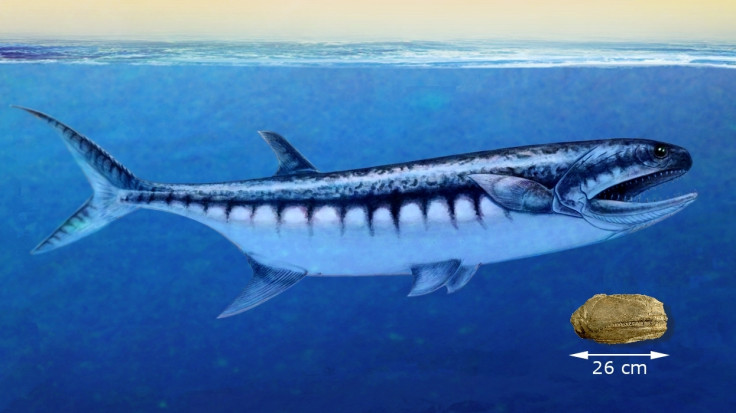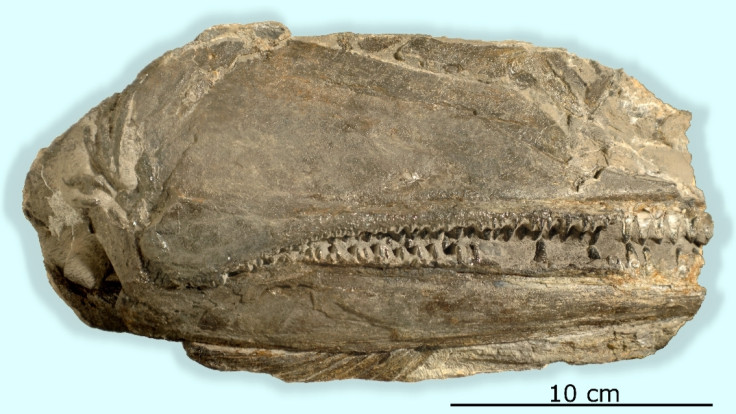Triassic 'jaws' fish became the ocean's top predator after biggest ever mass extinction
The 6-foot-long fish lived in the incredibly hot oceans of the early Triassic.

A 6-foot-long primitive, predatory fish with large and vicious jaws dominated the food chain in the oceans after the end Permian extinction.
The mass extinction event happened about 252 million years ago, and fundamentally changed the face of the oceans. About 90% of marine species died.
It is usually thought that a catastrophe this large would have rearranged and shortened food chains, with large predators unlikely to do well in the new ocean environment. But in the aftermath of the end Permian extinction, a 6-foot-long predator with fearsome jaws came to dominate the ocean.
The species, named Birgeria americana, was discovered in Nevada, and is now described in a study in the journal of Paleontology. It had a nearly foot-long skull, with particularly deadly teeth. It had three rows of them, the largest of which were nearly an inch long.
It is the oldest example of a large Birgeria fish discovered to date, at about one and a half times bigger than its ancestors. The fish is thought to have pursued and killed prey in much the same way as the famous great white shark today – first biting it and then swallowing it whole.
"The surprising find from Elko County in north-east Nevada is one of the most completely preserved vertebrate remains from this time period ever discovered in the US," said study author Carlo Romano in a statement.
The discovery raises questions about the kinds of creature that have been assumed to be able to thrive after a mass extinction. The seas of the early Triassic – which followed the Permian era – were incredibly hot. Birgeria Americana lived in oceans reaching 36C.
Exactly how it managed to survive in these conditions is a mystery. Fish alive today aren't able to reproduce effectively in water temperatures consistently at 36C or above.
"The vertebrates from Nevada show that previous interpretations of past biotic crises and associated global changes were too simplistic," Romano said.

© Copyright IBTimes 2025. All rights reserved.






















